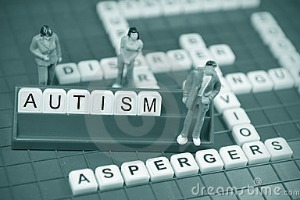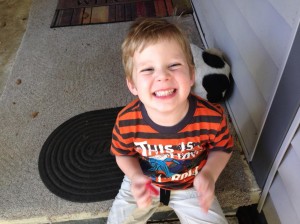 Alternate Title: What Happens When Flappiness Wakes Too Early and Gets to Thinking Without Any Idea of What She Plans to Write
Alternate Title: What Happens When Flappiness Wakes Too Early and Gets to Thinking Without Any Idea of What She Plans to Write
Today my heart is waiting on a phone call that my mind knows won’t be coming. A year ago today, my daddy called and asked me for the last time, “Will you be my Valentine?” – a little tradition between us that I loved. A tradition that my little girl won’t get to remember about him. My heart is heavy. I wish there was a place I could safely set it and not feel these raw emotions for just a few hours. But grief doesn’t work that way. It’s been a hell of a week. For personal reasons I can’t divulge and other dramas I don’t want to. Since I didn’t already have enough on my plate, pneumonia decided to vacation in my lungs. I’m tired.
I haven’t written much lately. It’s not because I have nothing to say. On the contrary, I have too much to say. All of the thoughts are pushing and shoving, trying to get out of the door in my mind. And since I don’t like crowds, I’ve just been sort of sitting back and waiting for them to calm down and line up in some semblance of order. But the mind is a very uncivilized place.
So is the autism blogosphere. If you aren’t a part of it, let me suggest you avoid it. There’s a war going on right now. It’s ugly. Factions of advocates are angry with one another. They bond together over whom they mutually hate, planning strikes and counter strikes in a war of words that no one is winning. We live in a world where recent generations have little understanding of the commonly accepted rules of debate. Thinking is very black and white, and one’s opinions of a single subject determine whether or not he is viewed as a person deserving of kindness and respect. Autism bloggers write posts expressing their views, and – rather than simply commenting with a reasoned disagreement – others seek to discredit them by questioning whether they have a right to be heard at all. Name-calling and personal attacks become a game whose winner is determined by the number of shares and likes received. Because the subject matter is so close to the hearts of the participants, all of this is easy to get caught up in. I know.
But today, I’m thinking about my father. A man known to never say a bad word about anybody. He was an attorney, and he knew a lot about arguing. When you practice law for 40 years in a small city, you know all the players. Every judge and attorney you know and like has been both on your side on cases and has worked against your side on cases. You duke it out using the rule of law. You win some, and you lose some. But, when you bump into those folks at the deli, you don’t hold a grudge. They made arguments that you didn’t agree with and maybe even won. They may have won a case you felt passionately about and now saddened for your client. But there isn’t an assumption of evil intent. You don’t race out and publish articles attacking them as lawyers. You don’t claim they have no right to practice.
Now I know that autism advocates aren’t necessarily lawyers. It’s not a parallel for several reasons. But I was raised with this mentality. That you don’t have to hate someone to disagree with them. You don’t have to make it your life’s mission to discredit them. You don’t need to be unkind simply because they see things differently. You can argue and reason and even declare their statements to be illogical. But you are never going to find anybody in this world who agrees with everything you do. And you will wear yourself out and become a very unlikable character if you go around expecting and hysterically insisting that they do.
I do not require my friends to agree with me on every important issue. I have friends who are pro-choice and friends who are anti-abortion. I have friends who are pro-gun rights and friends who are terrified of guns. Gay friends, straight friends. Jewish friends, Christian friends, and even a couple of ordained witches. I am positive that a dinner party with all of these folks would get lively.
The problem with the blogosphere is that the people behind the blogs aren’t really real to readers. You see a joke, assume a tone, take issue with a perhaps unfortunately worded sentence and – in the absence of any other knowledge of that person – a real human being becomes just a viewpoint that you hate. Unlike co-workers or acquaintances whose views you might disagree with, you don’t know that this blogger donates her time at nursing homes, feeds the poor, received a cancer diagnosis, makes from-scratch chicken soup for her neighbors, or whatever.
Fifteen years of working with middle schoolers has taught me something. (Actually, middle schoolers teach you a lot of things.) I have had to counsel more kids than I can count who are caught up in some sort of drama. Friends who become enemies by lunch time. Girls who insulted each other on Facebook. Every day of the week. And what I have found is that when you take two people who are passionately in disagreement, being egged on by an enthusiastic audience, and instead take them to a side room and close the door, they will eventually speak to one another. It takes a long time, but usually all it takes is one telling the other, “This is how I felt”. And the other usually says, “I didn’t intend to make you feel that way. But this is how I felt.” Despite all the animosity and stubbornness, they will usually find common ground and make a truce. I’ve rarely opened the door and found them still mortal enemies. They still might not agree, but they have become real to one another. Usually, you don’t have many problems after that. Sometimes, they become friends.
Here in the blogosphere, we cannot do that. Even in an email or private message. One’s mind interprets the words sent in the context of what one already believes about a person. They remain just a symbol of what you disagree with. Combine that with the anonymity of the internet, and you have a recipe for meanness.
I have been the subject of criticism this week and read some mean comments about me. People who like me have jumped in as well. Friends of those on both sides have gleefully infused themselves into the drama. All hell broke loose. And I find myself sitting here, early in the morning, wondering how to scrub off all of this caked on mud. Realizing that everyone in the wrestling ring is also covered in it and unrecognizable.
But there is no little room to go into in which to solve our differences. I remain the symbol of a viewpoint, as do they. I want to disengage, but I sincerely believe the issues too important to abandon. A friend told me last night that I just don’t have the stomach for all of this. And I think she’s right. I don’t like conflict. I don’t like people not liking me. I don’t like accusations I know to be untrue but feel powerless to correct. This ride – blogging – has a been a wild one.
I have been sitting, staring at this screen for several minutes now. But I still have no idea how to wrap this up neatly. Except to say that, aside from anything having to do with autism or parenting, it is my sincere belief that the first rule of discourse is kindness. That we must remember that those whom we disagree with are not necessarily evil. They have their own experiences that have flavored their perceptions, and those perceptions are every bit as real and heartfelt as our own. The problem is that most people simply don’t have the right words to convey to others who they are or where they are coming from. Not really. We try. We fail. We try again. But there aren’t enough words in all the combined languages of Earth to portray a single human heart.
And there is nothing to be done for that but to keep on trying. While trying to keep in mind that most people really are good at heart. Most believers in any cause are sincere and want to do good. Whether or not I agree with them is irrelevant to how they deserve to be treated. With respect, with civility, and with the benefit of the doubt I believe every human being should be willing to give to another — that we are all just trying to do the best we can with what we have and know. It’s a hard principle to remember in the heat of anger.
But it’s the best mud repellent around.
“I hope that one or two immortal lyrics come out of all this tumbling around.” -Louise Bogan
Like this:
Like Loading...
 I write about my children — in particular, my autistic child — on the Internet. I write about them and share my own experiences in raising them — for complete strangers to read. My joys, mistakes, successes, grief, guilt, self-doubt, and even those dark, middle-of-the-night moments of all-encompassing fear. I write about it all. That’s me. I’m a special needs parent blogger.
I write about my children — in particular, my autistic child — on the Internet. I write about them and share my own experiences in raising them — for complete strangers to read. My joys, mistakes, successes, grief, guilt, self-doubt, and even those dark, middle-of-the-night moments of all-encompassing fear. I write about it all. That’s me. I’m a special needs parent blogger.






 Bronwyn, my 5 year-old, has discovered YouTube. For the most part, this is a good thing. She watches kids’ music videos, children’s stories, and monster makeup tutorials made by other kids. She enjoys these “tatorials” so much that I can hear her “filming” her own videos, speaking directly to her audience as she discusses how to do such things as washing one’s own hair, counting to 100 by 5’s, and so forth. It’s cute, but I fear she is going to ask me for her own channel soon. No, she won’t be getting one.
Bronwyn, my 5 year-old, has discovered YouTube. For the most part, this is a good thing. She watches kids’ music videos, children’s stories, and monster makeup tutorials made by other kids. She enjoys these “tatorials” so much that I can hear her “filming” her own videos, speaking directly to her audience as she discusses how to do such things as washing one’s own hair, counting to 100 by 5’s, and so forth. It’s cute, but I fear she is going to ask me for her own channel soon. No, she won’t be getting one.


 When asked to write about what autism means to me, I jumped right in. I had a metaphor ready, and I set my fingers to the keyboard. But everything I typed in my first draft was no good. So, I tried to look at it from another perspective. Then another. Before I knew it, this simple question gave me a serious case of writer’s block. It seemed that no matter what I wrote, someone would take issue with it. Somebody would angrily declare, “That’s not what autism is to me!”
When asked to write about what autism means to me, I jumped right in. I had a metaphor ready, and I set my fingers to the keyboard. But everything I typed in my first draft was no good. So, I tried to look at it from another perspective. Then another. Before I knew it, this simple question gave me a serious case of writer’s block. It seemed that no matter what I wrote, someone would take issue with it. Somebody would angrily declare, “That’s not what autism is to me!”



